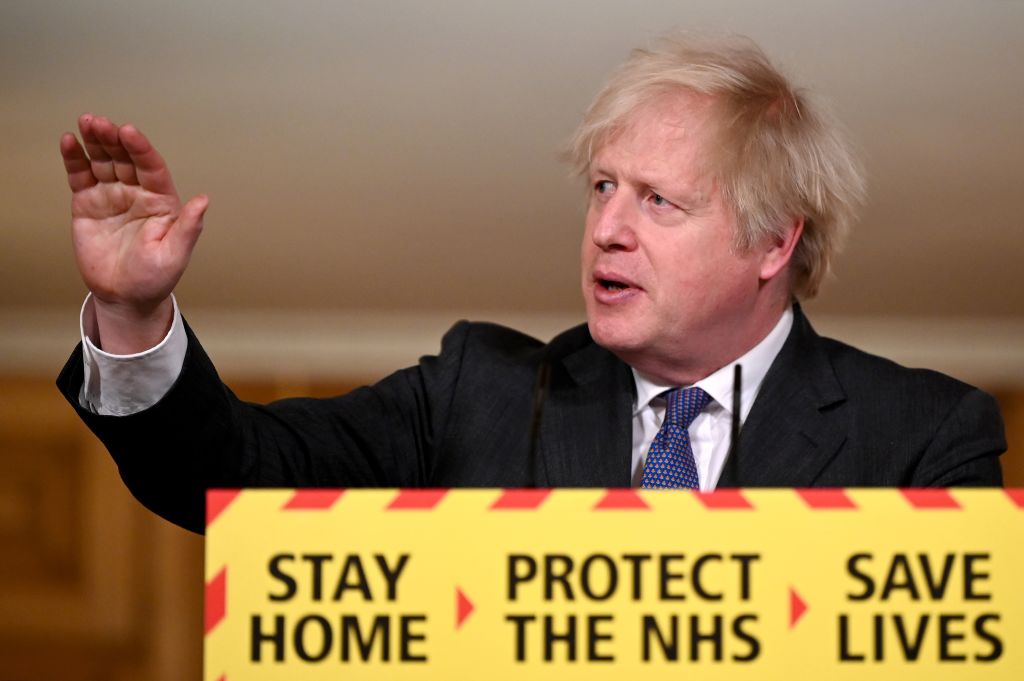
- Select a language for the TTS:
- UK English Female
- UK English Male
- US English Female
- US English Male
- Australian Female
- Australian Male
- Language selected: (auto detect) - EN
Play all audios:
I recently visited Oxford to see the superb Kafka exhibition at The Weston Library, marking the centenary of his death. If that was the highlight of my visit, the most disappointing thing
was to see the student encampment around the Radcliffe Camera, full of Palestinian flags and anti-Israel slogans. Imagine being a Jewish student or academic at Oxford confronted with this
hatred every day, even during Finals. There has been no attempt to clear these protesters away. As is so often the case at British and American universities, the grown-ups are afraid of the
children. They won’t do anything to preserve law and order and stand up for authority. This spectacle reminded me of Sir Isaiah Berlin’s experience of student protests at Oxford and at
American universities in the late Sixties. Berlin felt an increasingly embattled figure during this period. On 1 October 1968 he wrote to a friend, “I feel depressed by the rapid growth of
barbarism.” Berlin had mixed feelings about the Vietnam War. As he wrote at the time, in his contribution to a book called _Authors Take Sides on Vietnam _(1967), contrasting his feelings
about the Spanish Civil War with Vietnam, “I am still quite clear about what I felt in the middle 1930s — I was wholly pro Spanish Republican, and remain so still. I wish I could be equally
clear about Vietnam.” He wrote later in his essay, “I wish I could answer boldly and clearly… I cannot help feeling myself far closer to those who wish the war stopped at any price than to
their adversaries. If I had to choose between the two extremes, I have no doubt which I should choose.” In a letter in January 1968 Berlin wrote, “I myself am much agonised about it [the
Vietnam war]…” Berlin spent much of the late Sixties, the highpoint of the student protest movement, in America. From September 1966 until January 1967 and from February till May 1969, he
was a Professor of Humanities at CUNY (City University of New York). Most of his letters about student and black power protests were written between May 1968 and April 1969. “New York – the
student riots – the slowly mounting mass of black anger – is terrifying,” he wrote when he was back in Oxford in May 1968. A little later he wrote to his friend, the American historian
Arthur Schlesinger, “I really cannot _bear _this Hobbesian world in which no one is safe from maniacs and all forms of life tremble on the verge of collapse; I long for some bourgeois
stability; some protection against the turning of all private, inner disinterested activity into screams and shouts and public issues…” It was not a time for “soft shelled Liberals like me,”
he wrote in July. By October 1968 he was even more gloomy. “I feel depressed by the rapid growth of barbarism… [T]he revolutionaries of my day had some respect for knowledge and
intelligence… This generation is complacently ignorant, uses mechanical formulae to dispose of anything that may be difficult or complicated, hate history on the whole, wishes to throw off
the past… But I must not go on with this lamentation: it sounds like some decayed liberal from Turgenev, or some horrified old baronet in _The Times_.” His dark thoughts about the ignorance
of the younger generation are particularly resonant today. How many thoughtful books or articles have been written by protesting students about their anti-Israel protests? Think of Chomsky’s
books criticising the Vietnam war, William Sloane Coffin’s eloquent sermons calling for peace in South-East Asia, or EP Thompson’s passionate attacks on nuclear deterrence in the 1980s a
decade and a half later. The anti-Israel movement has provided nothing remotely comparable. It has offered graffiti, hate marches and genocidal slogans. Later in 1968 Berlin wrote to his
friend, the American writer, Elizabeth Hardwick, about “the bearded students – who are now, in point of fact, swarming through Oxford, attacking All Souls, putting up obscene graffiti on the
walls”. He continued, “The students are turning everything topsy-turvy, though not in Columbia style.” What was happening in British universities seemed to Berlin “a miserable, tame affair”
compared to what was happening in America — rather like today, more than fifty years later. In April 1969 Berlin wrote to his old friend, the classicist Maurice Bowra. Berlin was back at
CUNY and had a clear sense of what was happening in New York. “Columbia is in a mess,” he wrote. “The professors wonder when their next class is going to be disturbed, and if so what they
will do – can they just walk out? Is there some safer university, or is this both cowardly and inexpedient? The administration is trying to appease, but nobody knows whether this will lead
to sharper revolt or, on the contrary, will allay the passions. The streets of New York are full of Christs — … all wild, all bearded, all very mad…” Berlin’s letters seem remarkably timely
today. He could be writing about British and American universities now. But perhaps what is most fascinating about these letters is his growing identification with his Russian heroes,
especially Herzen and Turgenev, which led to some of his greatest essays in _Russian Thinkers _(1978, reprinted several times, most recently in 2013). “My fellow feeling with poor Herzen was
always tremendous,” he wrote in April 1969, “but it has now reached a point of lunatic self-identification.” A year later, on 25 March 1970, he wrote of “the heroes, Belinsky, Herzen,
Turgenev, Tolstoy”. In particular, he wrote of Turgenev: “Turgenev enjoyed these contradictions rather more than poor Belinsky did. His fate – that of a liberal between the twin pressures of
radicals on his left and aesthetic unpolitical writers on his right – seems to me the paradigm of a great many situations since.” Later in 1970, Berlin wrote, “I keep reading more by &
about Turgenev…” He was in the midst of preparing his Romanes Lecture at the Sheldonian Theatre in Oxford on Turgenev, later published as “Fathers and Children: Turgenev and the Liberal
Predicament” (now available in _Russian Thinkers_)_. _Berlin identified with Turgenev, “walking a causeway between Scylla (Dostoevsky & the squires he liked best) & Charybdis
(bearded students & London & Paris revolutionaries…)….” He was fascinated by “the relevance of the liberal dilemma in which he [Turgenev] was involved for our own times”. Of course,
Turgenev was, as Berlin wrote, “a writer of beautiful lyrical prose, the author of nostalgic idylls of country life, the elegiac poet of the last enchantments of decaying country houses…”
But the real reason for Berlin’s identification with Turgenev was more personal and political. “Turgenev,” he said in his Romanes lecture, “was by nature cautious, judicious, frightened of
all extremes, liable at critical moments to take evasive action.” And as a social and political writer, his major novels “are deeply concerned with the central social and political questions
that troubled the liberals of his generation”. More than that, “no one in the entire history of Russian literature … has been so ferociously and continuously attacked, both from the right
and from the left, as Turgenev.” “Turgenev,” Berlin wrote, “was accused of vacillation, temporising, infirmity of purpose, of speaking with too many voices. Indeed, this very topic obsessed
him. _Rudin_, _Asya_, _On the Eve_, the major works of the 1850s, are preoccupied with weakness…” These passages are so powerful because they are so personal, they speak about Berlin as much
as Turgenev. Secondly, Berlin was writing these words at a time very similar to Turgenev’s, when the Left was on the rampage and liberals like Turgenev and Berlin felt so isolated. These
letters about the student unrest and then about Herzen and especially Turgenev, and his great essay about Turgenev, cast a great deal of light onto this phase of Berlin’s career. In the
1950s, Berlin had been at the height of his career, an acclaimed political philosopher at Oxford, a champion of liberalism with first-hand experience of the terrors of Stalinism from his
time in Moscow and Leningrad and, above all, his encounters with writers like Boris Pasternak and Anna Akhmatova, just after the war. In the late 1960s and 1970s, however, he came under
attack from New Left thinkers like Perry Anderson and a new generation of historians of ideas like Quentin Skinner and John Dunn. Time seemed to be passing him by. No wonder he felt
embattled and isolated in these letters. More important still, he felt that the ideas he had always stood for were under attack from the New Left. But then the wheel turned again and by the
mid-1990s Berlin was acclaimed again, this time as the grand old man of liberalism. He lived to see Communist Russia overthrown. Liberalism had triumphed. The values he had fought for all
his life, above all, liberalism and pluralism, were vindicated. Now, almost thirty years after his death, the hate-filled rabble are on the march again, in his beloved Oxford, at Harvard,
Columbia and UCLA. Worse still for Berlin, the new generation of Muslim agitators and bearded radicals are fired up by antisemitism and hatred for Israel. Berlin’s letters, especially Volume
III, and his essays on Turgenev and Herzen, are just as timely today as they were then. They speak to us about the virtues of moderation and liberalism and the dangers of irrationalism and
intolerance — what Aileen Kelly, in her Introduction to _Russian Thinkers_, called a “fanatical passion for extreme ideologies”. But where are the Isaiah Berlins of the present? A MESSAGE
FROM THEARTICLE _We are the only publication that’s committed to covering every angle. We have an important contribution to make, one that’s needed now more than ever, and we need your help
to continue publishing throughout these hard economic times. So please, make a donation._







